How Rangers' dubious tax wheeze unravelled
- Published
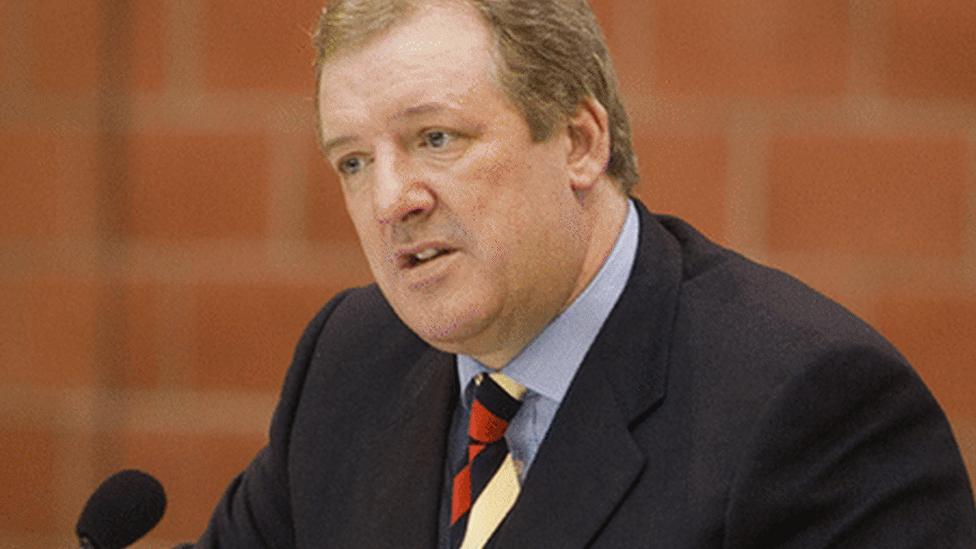
Sir David Murray was in charge of Rangers when EBTs were used
When BBC Scotland revealed the full extent of the Employee Benefit Trust scheme operated by Sir David Murray companies in 2012, it caused an outcry on a number of different fronts.
Celtic fans were outraged their rivals had seemingly gained an unfair sporting advantage by winning titles with players they otherwise could not have afforded without this dubious tax wheeze.
Rangers fans were angry because the name of their club was being dragged through the mud - through no fault of theirs.
Sir David Murray made a criminal complaint against the BBC for broadcasting the data, which he said was "private and confidential".
Now, according to today's judgment, the "true nature" of the EBT scheme, of which Sir David was the single biggest recipient, has been laid bare.
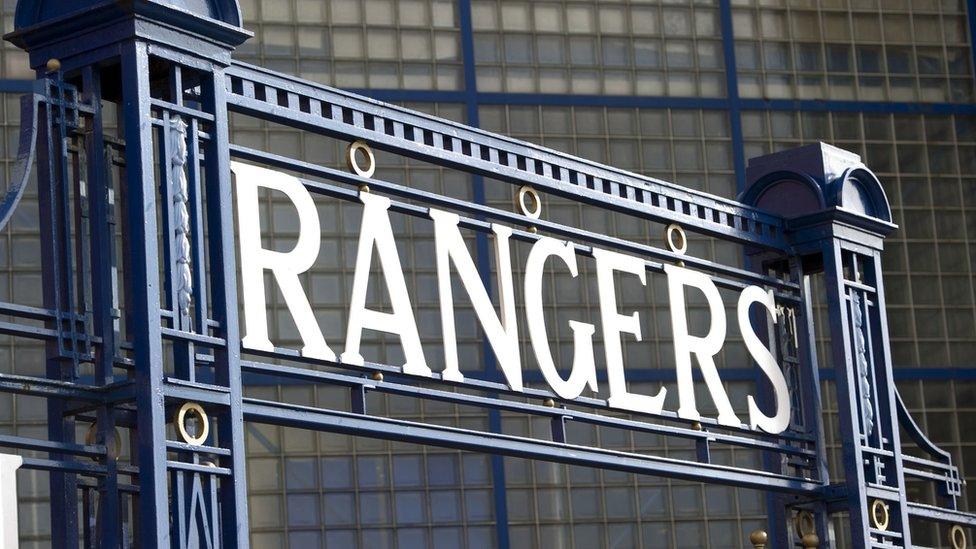
In what appears to be a thinly disguised critique of the original First-tier Tribunal decision, Lord Drummond Young said it was "common sense" that "if income is derived from an employee's services…it is ..earnings".
And so, tax should have been paid.
Using our "data room" in the BBC Scotland programme Rangers: The Men Who Sold The Jerseys, we revealed how 87 EBT sub-trusts had been set up for Rangers players or staff, with up to £47m paid.
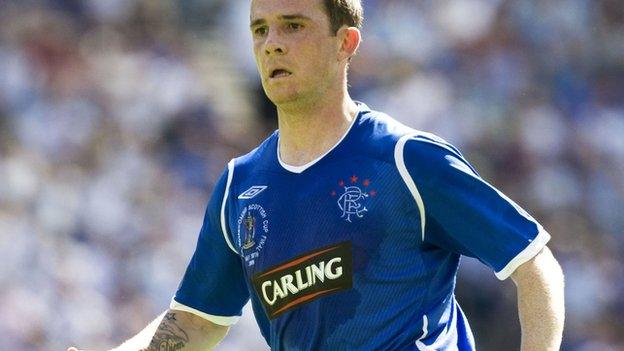
Former Rangers captain Barry Ferguson had £2.5m in EBTs
Recipients included former captain Barry Ferguson (£2.5m), goalkeeper Stefan Klos (£2.5m) and even a curious £30,000 payment to former manager Graeme Souness 10 years after he left the club.
Between 2001 and 2010, 40% of Rangers players benefited from the scheme. Thirteen trophies were won during this period.
Sir David Murray was the biggest recipient, receiving £6.3m of tax-free cash. He always claimed it was legitimate.
But the scheme - brought to the club by struck-off lawyer and pornographer Paul Baxendale-Walker - was a high-risk strategy, which even if today's judgement had gone the other way, was so close to the wire that it was always going to attract heat from the tax man.
The club had used the scheme heavily, meaning that if it ever came unstuck, the liability could be too great to absorb.
This potential liability had made the club unsellable to any serious bidder.
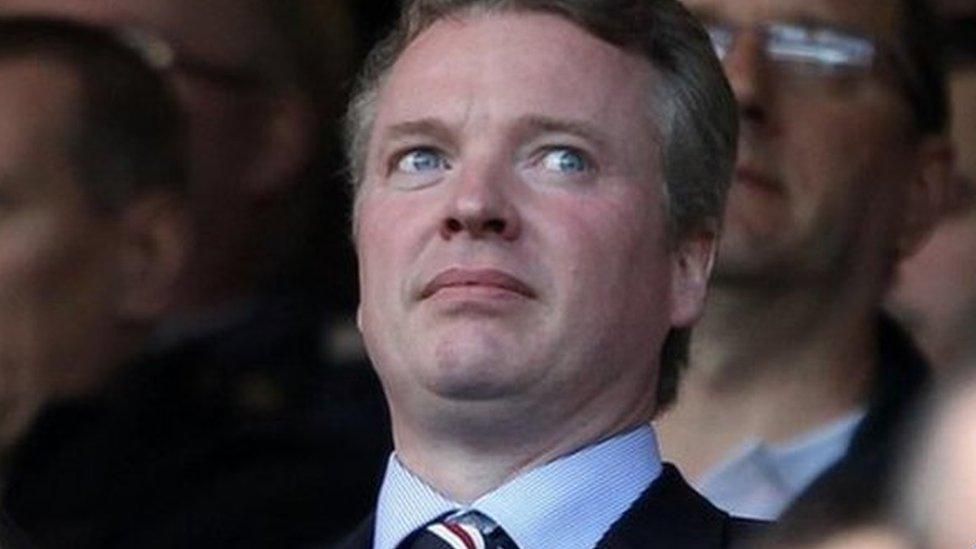
Craig Whyte bought Rangers for £1
The only man interested was Craig Whyte, from whom Sir David took £1 to walk away.
Sir David Murray's old empire lies in tatters. His company which owned Rangers is in liquidation.
HMRC may now enter the scrap for the cash liquidators have managed to salvage, along with the dozens of small businesses which were left out of pocket by the collapse of Rangers.
Today's decision may be appealed against by the liquidators, and the saga could continue.
But ultimately, who has paid for this disaster?
The fans, of course.
- Published4 November 2015
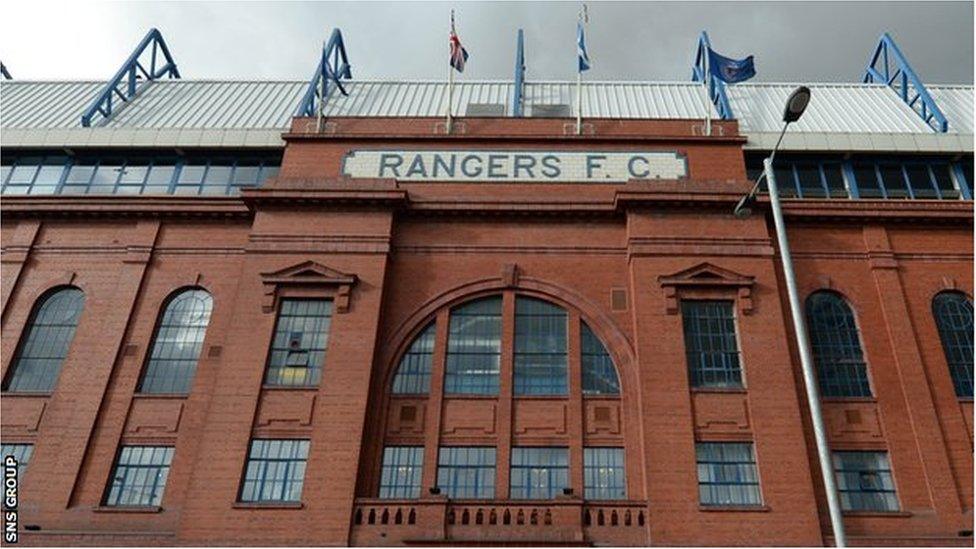
- Published1 September 2015